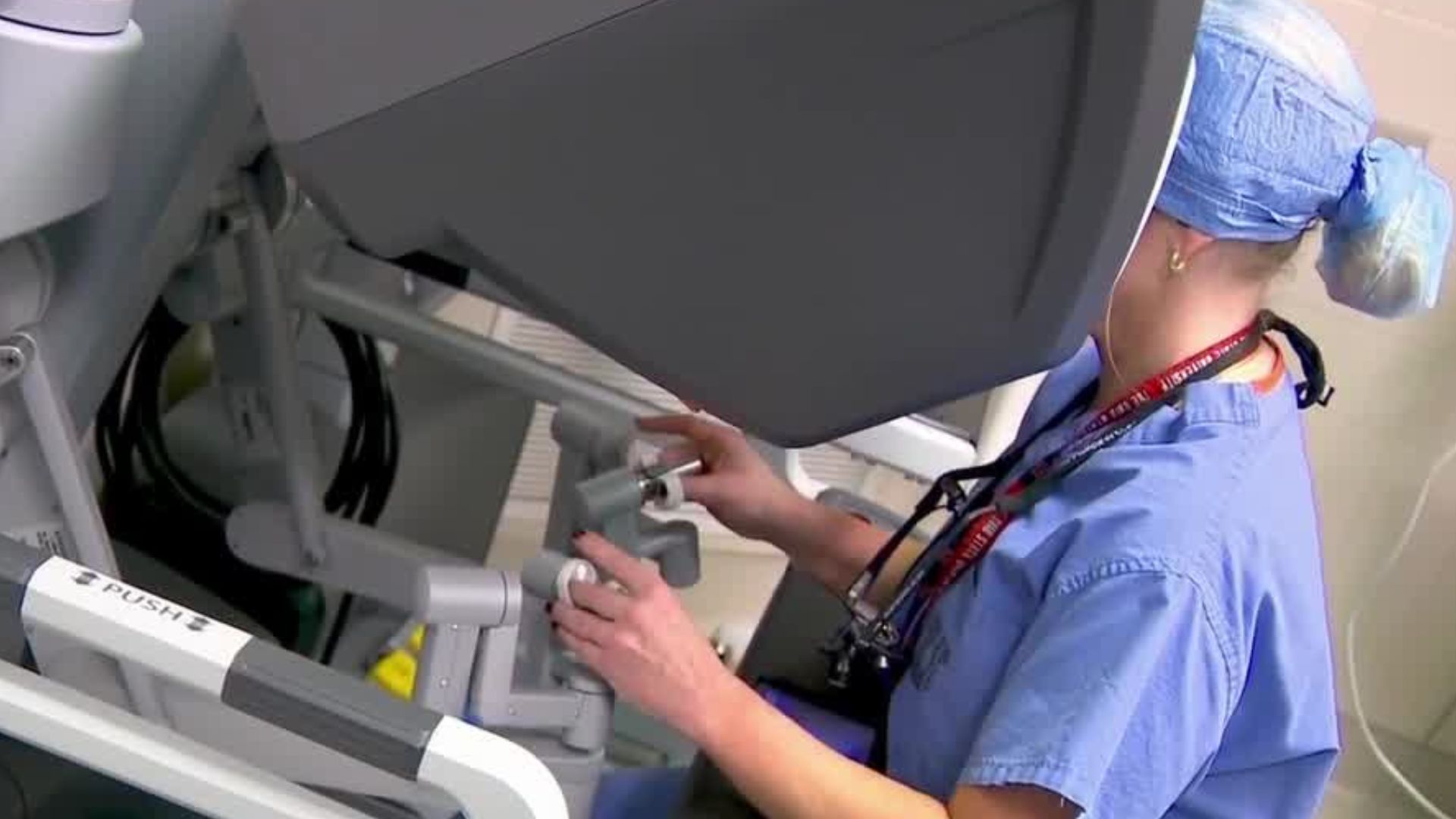SALT LAKE CITY — This week, the Huntsman Cancer Institute in Salt Lake City became the first and only hospital in the Mountain West to begin having its surgeons use a new type of robot on people with head and neck cancers.
FOX 13 News was invited inside the operating room to receive a first-hand look at the Da Vinci SP robotic surgical system before it’s used on people. SP stands for single-port, which is the main differentiator between the new robot and the older Da Vinci model that they’ve been working with.
“This is the first robot where all the instruments can come out through one, single port and then splay out inside of a patient,” according to Huntsman Cancer Institute Thoracic Surgeon Dr. Brian Mitzman. “This allows us to get into much tighter spaces… through much smaller incisions… do more precise surgery, which leads to faster recovery and better operations for the patients.”
Mitzman says a surgeon will sit at a nearby console where they will be in charge of controlling the robot’s actions through their movements. The console is equipped with hand and foot pedals, as well as a highly-specialized camera.
“It has a unique camera that changes shape. It goes into what’s called ‘cobra pose’, and it allows us to see around very specific corners…at the back of the tongue…all the way in the back of the throat that we might not be able to see otherwise,” explains Hunstman Cancer Institute Surgeon Dr. Hilary McCrary.
McCrary has received about a year of training with the new, single-port robot and was first to use it on a patient at Huntsman Cancer Institute.
FOX 13 News talked with that patient, Reyes Salazar, 34, of Salt Lake City before he went in for his surgery Monday.
“From what I’ve read, and what I’ve been told, this procedure is going to have minimal scarring. [I] have high hopes for a speedy recovery," Salazar explains.
For 26 years, Salazar has been struggling to live a healthy life. Before he was 10 years old, he underwent multiple surgeries to remove a bone tumor on his head caused by a disease called fibrous dysplasia. While going through that, doctors discovered a non-cancerous cyst in his airway. Despite several laser surgeries to remove these reoccurring cysts, it resurfaced again in the base of his tongue in June of 2023.
After learning about Huntsman Cancer Institute’s new single-port robot, Salazar decided to pursue that option.
“I’m doing my body this favor to fight one more time and it deserves that," he said. "I’ve fought so hard all these years.”
Salazar will be one of many patients that will be operated on by the robot. McCrary anticipates they will see 2-to-3 patients per week to start. She believes they will be able to help more people moving forward as awareness for the technology grows.
Mitzman adds that there’s no increased risk when it comes to using a robot for surgery versus other methods. If anything, he believes these devices are safer because they cut down on the incision size and time surgeons spend in the operating room.




